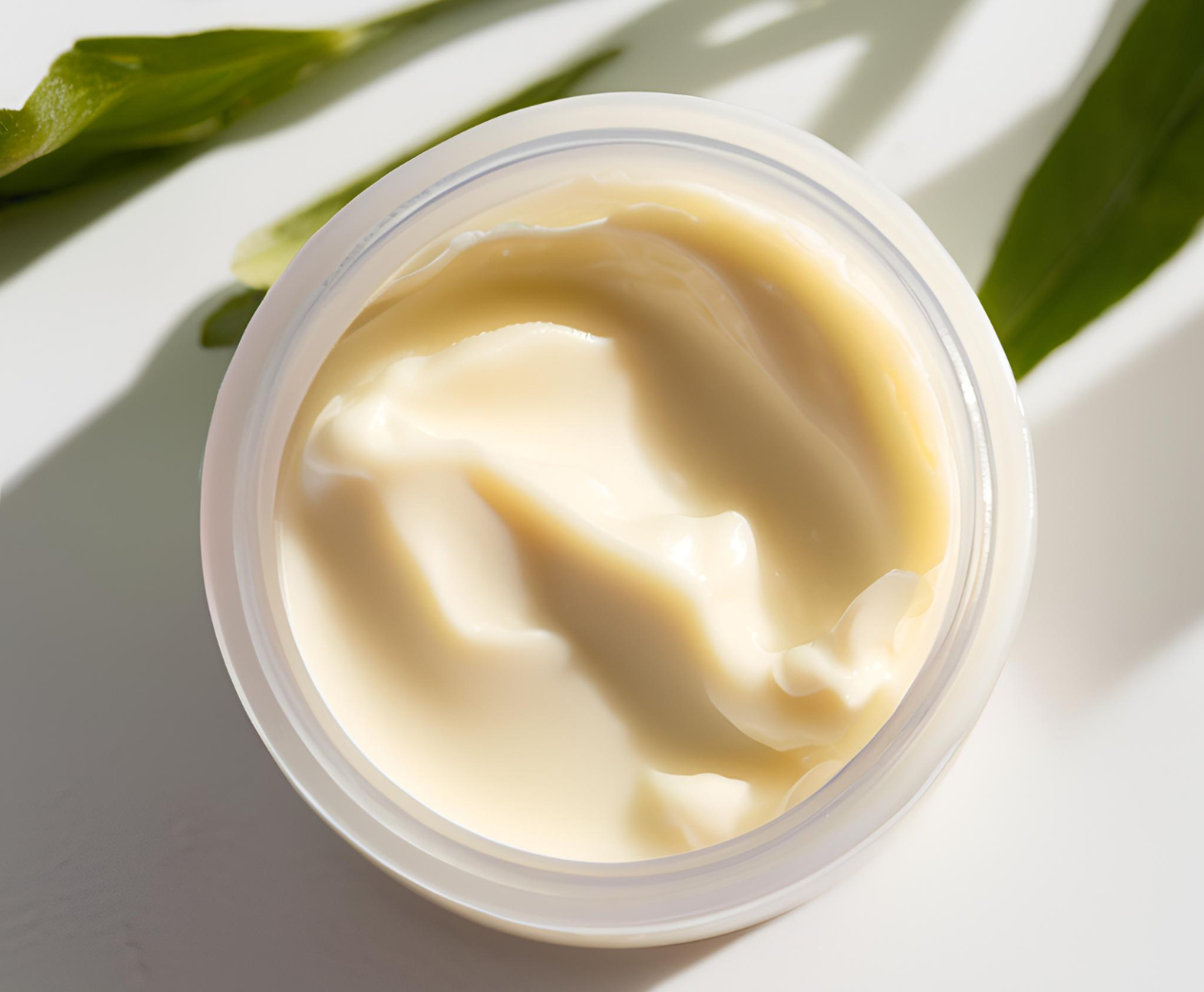


Shea butter has long been praised as a powerful natural moisturizer with a range of skincare benefits. Found in everything from body lotions to facial creams, this rich, creamy butter has the potential to transform your skin’s texture, boost its hydration, and even help reduce signs of aging. If you’re looking for a natural ingredient that can take your skincare routine to the next level, shea butter could be just what you need.
Here, we’ll explore what makes shea butter a standout ingredient, what it can do for your skin, and how you can use it to unlock a more radiant, healthy complexion.
Shea butter is a luxurious, nutrient-rich fat extracted from the nuts of the shea tree (Vitellaria paradoxa), which primarily grows in West and East Africa. Known for its creamy, buttery consistency, shea butter is off-white or ivory-colored and melts effortlessly upon contact with the skin, making it easy to apply. It’s packed with essential fatty acids and vitamins, including vitamins A and E, which contribute to its remarkable benefits.
In its unrefined form, shea butter contains cinnamic acid, an anti-inflammatory compound. While refined shea butter loses some of its nutrients during processing, it’s still a popular choice in skincare products. Whether in raw or processed form, shea butter for skin remains a highly effective natural remedy for a variety of skin concerns.
The use of shea butter in skincare has grown steadily due to its versatile benefits and compatibility with various skin types. Its high fatty acid content, including oleic, stearic, and linoleic acids, makes it a superb emollient that locks in moisture and creates a protective barrier on the skin.
Shea butter cream is often recommended for those with dry or reactive skin, as it helps restore hydration and soothes irritation. It also works well as an ingredient in facial masks and body scrubs, thanks to its ability to soften and smooth skin. Although shea butter is suitable for most skin types, those with acne-prone or oily skin may want to use it cautiously, as it can sometimes clog pores.
Using shea butter for skin can provide a host of benefits, from moisturizing to anti-aging properties. Here’s a breakdown of its top benefits and how it can enhance your skincare routine:
One of the primary reasons people turn to shea butter cream is its impressive moisturizing power. Shea butter’s fatty acids—oleic, stearic, palmitic, and linoleic acids—work together to replenish dry skin by locking in moisture and preventing water loss. This makes shea butter a go-to ingredient in lotions and creams formulated for dry or dehydrated skin types.
For those who struggle with maintaining a supple, dewy complexion, adding shea butter into a daily skincare routine can make a noticeable difference. Its emollient properties help smooth rough patches and protect the skin from harsh environmental factors, such as cold weather or air pollution.
Shea butter’s natural anti-inflammatory properties make it an excellent choice for those who experience skin irritation or inflammation. Research highlights its effectiveness in soothing conditions like eczema, psoriasis, and sunburn due to compounds that help reduce redness and swelling.
If your skin often reacts to environmental stressors or new products, using shea butter in skincare might help ease discomfort. You can apply a shea butter cream to affected areas, which allows it to quickly reduce inflammation and promote a calmer, healthier skin appearance.
The antioxidants found in shea butter—most notably vitamins A and E—play a vital role in protecting your skin from cellular damage. Antioxidants neutralize free radicals, which are unstable molecules generated by exposure to pollutants and UV rays. Over time, free radical damage can contribute to wrinkles, loss of elasticity, and other signs of aging.
Adding a shea butter cream to your skincare routine can help support skin health at a cellular level and prevent visible signs of aging.
Vitamin A, a potent antioxidant in shea butter, is essential for skin health and is well-known for its role in anti-aging skincare. This vitamin promotes skin cell renewal, smoothing out the skin’s surface and minimizing the appearance of fine lines. It also encourages collagen production, a protein responsible for maintaining skin’s firmness and elasticity.
Incorporating vitamin A through shea butter can help keep your skin looking youthful, resilient, and radiant. For those looking to support skin regeneration without harsh chemicals, shea butter is an excellent natural alternative.
Vitamin E is another powerful antioxidant naturally present in shea butter. Known for its moisturizing and healing properties, vitamin E helps maintain the skin’s natural barrier and prevents moisture loss. As our skin’s sebum (natural oil) production decreases with age, vitamin E’s hydrating effect becomes even more valuable, especially for mature skin.
This vitamin is not only moisturizing but also plays a role in reducing inflammation, making it a beneficial component in shea butter for those with sensitive skin types. Vitamin E can also improve skin texture and tone, giving your skin a smoother, more even appearance.
Shea butter in skincare is more than just a trend; it’s a proven powerhouse ingredient that supports skin health in multiple ways. From its deeply hydrating effects to its anti-inflammatory and antioxidant properties, shea butter cream is a must-have for those looking to enhance their skin’s natural radiance.
Incorporate shea butter into your daily skincare routine by using products that include it as a primary ingredient, or try applying raw shea butter directly to particularly dry or irritated areas for added relief. Keep in mind that while shea butter is safe for most people, those with acne-prone skin may want to use it sparingly to avoid potential pore-clogging.
By understanding what shea butter is and its wide-ranging benefits, you can harness the natural power of this ingredient to create a skincare regimen that nurtures and protects your skin. With regular use, shea butter for skin can reveal a softer, more radiant complexion, making it a true beauty staple.